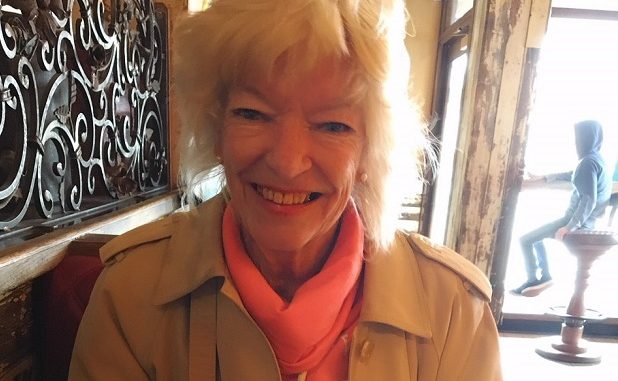
“I can’t think of anything to write a column about. I’ve exorcised every grudge” I told my mum, over half a pint of wine.
“Why, you should write about ME!” she trilled, the giant egomaniac. That’s how you can tell we’re related.
DNA and its attendant consequences have been on my mind this week. My brother-in-law Laurence had one of those gob-in-a-pot DNA tests done: he’s 20% Scandinavian, it seems, much to his bafflement. I quite fancy getting it done myself, but it’s £79, I’m a tightwad, and I do wonder how much self-awareness I’d gain from knowing in which part of the globe I originated.
Presumably it’s part of our desire to possess a sense of identity, an overarching narrative, to fill the gap organised religion used to occupy. Where do we come from, where are we going, what does it all mean anyway? Without the myths and moral codes of the Bible or Koran or what-have-you, we often surrender to quick fix materialism to give us meaning and joy, but that thrill is transient and unsatisfying. With DNA tests, we can look instead to our ancestors to make sense of our lot.
And yet there seems to be an oddly racist subtext to this trend. What do I imagine, that discovering I’m 12% Jewish will explain my intense interest in money, or 20% African, my excellent sense of rhythm? Surely our experiences shape us far more than our racial inheritance. Surely? Under our differing levels of melanin all humans are just a seething mass of blood, pus and resentment, trapped on a dying planet, searching desperately for meaning.
Ah yes, that’s what I’ve inherited from my mum: my relentless optimism. Among many other traits. The stories families tell about themselves shape their members far more than their genetic makeup. You’re lazy like your father, brighter than your sister; you’ve got your uncle’s temper, your cousin’s jealous streak. Or whatever. But in my instance, my mum is the only family I have.
And luckily, she’s awesome. She danced with the Royal Ballet as a teenager, got bored, decided to sing and dance in cabarets all over the world instead; danced at the Palladium, at the Eurovision, then got landed with me, and had to teach dance instead. Ballet, jazz, tap. A single mum from the start, she worked until I appeared, and had to get back to it when I was only six weeks old. To her I owe my determination, capacity for hard work, excellent legs, complete lack of a moral compass: a firm belief the usual rules don’t apply to me.
I grew up stage-struck, surrounded by music, believing anything was possible with enough grind, hustle and charm. And here I am, a music therapist running a theatre company. Let the DNA test say what it might, it’s apparent to whom I owe everything.
So that’s £79 towards our next drinking session.

